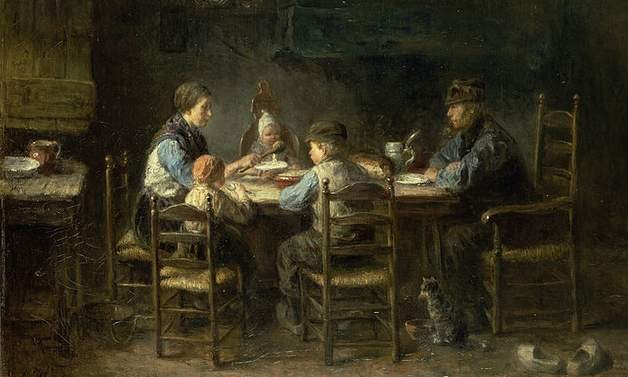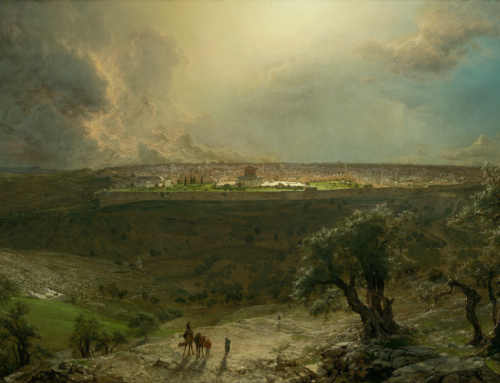Nothing simplifies life like a zombie apocalypse. Texting, tweeting, and the broader culture of distraction fade away when one is faced with the onslaught of the undead as depicted in World War Z, The Zombie Survival Guide, and The Walking Dead. I think this simplicity is the appeal of the zombie genre and the reason it has enjoyed wide popularity in so many movies, books, and television shows of recent years.
It’s a commonplace that we in the West are busy, and that we never have time for what’s really important in life: things like family, personal contact, being at home, and prayer. Americans work long, hard hours and then pour recreation time out in all directions, often while ignoring the people closest to them. Amazon yielded 3,189 results to a “simplify your life” search in books. Barrels of ink have been spilt encouraging people to slow down and live less in the treadmill culture.
The zombie movie stops the treadmill and shows a life lived by essentials. Superfluous activities and distractions are stripped away overnight. The portfolio, the soccer practice, and the demanding boss all disappear as people protect their families and flee an existential threat. It is the relationships among them and their few possessions that sustain the characters. It is merely three companions—and not six hundred Facebook friends—that matter. People are forced to look around, examine their surroundings carefully, and not take anything for granted.
In World War Z, Brad Pitt’s character flees Philadelphia with his wife and two daughters. They are his world. Those four people form a little platoon that is either going to survive or perish. He is the point man, but they all play a role in preserving the life of the family. Pitt saves the others most often by bullets, the wife by intuition, and the little girls by being bold enough to ask for help at a locked door. Cell phones, computers, and other devices that we rely upon stop working, and, as a result, people are forced to deal directly with each other again. The twenty-first century family is now like that of the nineteenth.
The search for a home and security for loved ones pervades these films. Shooting zombies is always a means to an end: escape and the start of a new life somewhere else. The cities are always affected the worst in these films. I’m not sure whether the directors read E. F. Schumacher’s Small is Beautiful or love small-scale, distributist ideals, but that result seems to occur naturally: the home is a more intimate place at the end of the adventure.
In between the expulsion from one home and the search for another, all external structure disappears: man is left with God, himself, and a few companions. Man, fallen but also with unforeseen depths of heroism, shows himself as he truly is. Robbery and altruism follow one right upon the other. And two petitions we regularly address to God acquire new meaning: “give us this day our daily bread” and “deliver us from evil.”
A truly bold hope is constantly on display in these movies: characters routinely risk death to save one life. Hope’s opposing vice, despair, makes an appearance as well. It is brought on, not unreasonably, by the perception of powerlessness in the face of such unfathomable destruction. Yet its fruit immediately follows: the death of the despairing one (an apt analogy for spiritual hope and spiritual despair).
In the end, of course, zombies are not real. The zombie apocalypse is a device to provoke thought and create a unique survival scenario: one which forces humans into close acquaintance and alliance towards an end. It is this dynamic that draws in an audience disappointed with superficial clutter and hungering for an authentic life, a life of true simplicity. And, hopefully, when the audience exits the dark movie theater, the beacons of hope, home, and heroism will be more luminous to them.
✠
Image: Jozef Israëls, Peasant Family at the Table







